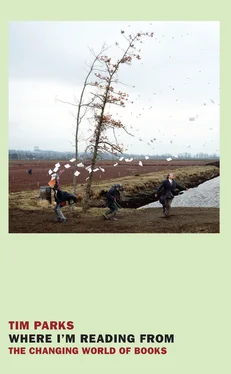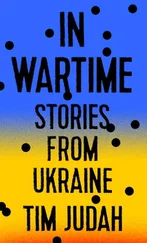Let’s try to frame this more clearly. How many broad criteria are there for assessing or appraising another person? Not that many. Crudely we can think of them as good or evil, courageous or cowardly, belonging to our peer group or not belonging, talented or untalented, winners or losers. Naturally each of these criteria has its nuances and subsets, but basically, I think, that is it. And if I were asked which criterion is considered most important today, I would have to say the last. What matters is winning, sales, celebrity, world domination. Yet this must never be acknowledged as the principal value. So one wins while apparently championing other virtues and talking about quite other matters. In Joseph Anton Rushdie understandably raises the banner of freedom of speech—How is it fair, he asks at one point, that Margaret Thatcher is free to arrange a book presentation when I, because of the security costs, am not? This is not necessarily hypocrisy. One can care a great deal about this or that issue, or art form, or aesthetic, while beneath what still matters most is winning.
You can get interesting insights into this by opening up author websites, especially those of the less celebrated authors who maintain their sites themselves. Almost the first thing in front of you is a prize, an indication of success. “Born in Dublin in 1969, I am an award-winning writer” is the opening announcement from Emma Donoghue, author of the highly successful Room . Arnon Grunberg, arguably Holland’s most successful living novelist, has a map of the world on which only those countries that have published his work are named. But they are many. Click on Egypt, Estonia, Japan and you can see what he has published there. Grunberg blogs in English and is clearly eager to have a world audience. So am I, for that matter. What is success without a world audience these days?
The question remains, why do people have such a high regard for authors, even when they don’t read? Why do they flock to literary festivals, while sales of books fall? Perhaps it is simply because reverence and admiration are attractive emotions; we love to feel them, but in an agnostic world of ruthless individualism it gets harder and harder to find people you can bow down to without feeling a little silly. Politicians and military men no longer fit the bill. Sportsmen are just too lightweight, their careers so short-lived. In this sense it is a relief for the reader and even the nonreader to have a literary hero, at once talented and noble, perhaps even longsuffering, somebody who doesn’t seem chiefly concerned with being more successful than we are. Alice Munro, with her endless, quietly sad accounts of people who fail to achieve their goals, gets it just right here: exploring that sense of failure so many feel in a competitive world, she wins the biggest prize of all.
DOES MONEY MAKE US WRITE BETTER?
LET’S TALK ABOUT money. In his history of world art, E. H. Gombrich mentions a Renaissance artist whose uneven work was a puzzle, until art historians discovered some of his accounts and compared incomes with images: paid less he worked carelessly; well-remunerated he excelled. So, given the falling income of writers over recent years—one thinks of the sharp drop in payments for freelance journalism and again in advances for most novelists, partly to do with a stagnant market for books, partly to do with the liveliness and piracy of the Internet—are we to expect a corresponding falling off in the quality of what we read? Can the connection really be that simple? On the other hand, can any craft possibly be immune from a relationship with money?
Asked to write blogs for other sites, some with much larger audiences, I chose to stay with The New York Review of Books , partly out of an old loyalty and partly because they pay me better. Would I write worse if I wrote for a more popular site for less money? Or would I write better because I was excited by the larger number of people following the site? And would this larger public then lead to my making more money some other way, say, when I sold a book to an American publisher? And if that book did make more money further down the line, having used the blog as a loss leader, does that mean the next book would be better written? Or do I always write the same way regardless of payment, so that these monetary transactions and the decisions that go with them affect my bank balance and anxiety levels, but not the quality of what I do?
Let’s try to get some sense of this. When they are starting out, writers rarely make anything at all. I wrote seven novels over a period of six years before one was accepted for publication. Rejected by some twenty publishers, that seventh eventually earned me an advance of £1,000 for world rights. Evidently, I wasn’t working for money. What then? Pleasure? I don’t think so; I remember I was on the point of giving up when that book was accepted. I’d had enough. However much I enjoyed trying to get the world into words, the rejections were disheartening; and the writing habit was keeping me from a “proper” career elsewhere.
I was writing, I think, in my early twenties, to prove to myself that I could write, that I could become part of the community of writers, and it seemed to me I could not myself be the final judge of that. To prove I could write, that I could put together in words an interesting take on experience, I needed the confirmation of a publisher’s willingness to invest in me, and I needed readers, hopefully serious readers, and critics. For me, that is, a writer was not just someone who writes, but someone who publishes and is read, and, yes, praised. Why I had set my heart on becoming that person remains unclear.
Today, of course, aspiring writers go to creative writing programs and so already have feedback from professionals. Many of them will self-publish short stories online and receive comments from unknown readers through the web. Yet I notice on the few occasions when I have taught creative writing courses that this encouragement, professional or otherwise, is never enough. Students are glad to hear that I think they can write, but they need, as I once needed, the confirmation of a publishing contract, which involves money. Not that they’re calculating how much money, not at this point. They’re thinking of a token of recognition—they want to exist, as writers.
Yet as soon as one has left the starting line, money matters. Of course it’s partly a question of making ends meet; but there must be few novelists who believe they will live entirely from their writing as soon as a first novel is published. No, the money is important aside from a question of need because it indicates how much publishers are planning to invest in you, how much recognition they will afford you, how much they will push your book, getting you that attention you crave, and of course the level of the advance will tell you where you stand in relation to other authors. If the self-esteem that comes with “being a writer” can only be conferred when a publisher is willing to invest, it follows that the more they invest the more self-esteem they afford.
Is this a healthy state of affairs? Clearly we are far away from the minor Renaissance painter who coolly calibrates his efforts in relation to price, unflustered by concerns about his self-image or reputation in centuries to come. In his masterpiece Jakob von Gunten , Robert Walser has his young alter ego commiserate with his artist brother and question how a person can ever be at ease if his or her mental well-being depends on the critical judgment of others.
Paradoxically, then, almost the worst thing that can happen to writers, at least if it’s the quality of their work we’re thinking about, is to receive, immediately, all the money and recognition they want. At this point all other work, all other sane and sensible economic relation to society, is rapidly dropped and the said author now absolutely reliant on the world’s response to his or her books, and at the same time most likely surrounded by people who will be building their own careers on his or her triumphant success, all eager to reinforce intimations of grandeur. An older person, long familiar with the utter capriciousness of the world’s response to art, might deal with such an enviable situation with aplomb. For most of us it would be hard not to grow presumptuous and self-satisfied, or alternatively (but perhaps simultaneously) over-anxious to satisfy the expectations implied by six-figure payments. An interesting project, if any academic has the stomach to face the flak, would be to analyze the quality of the work of those young literary authors paid extravagant advances in the 1980s and 1990s; did their writing and flair, so far as these things can be judged, fall off along with the cash? For how long did the critical world remain in denial that their new darling was not producing the goods? Celebrity almost always outlives performance.
Читать дальше












